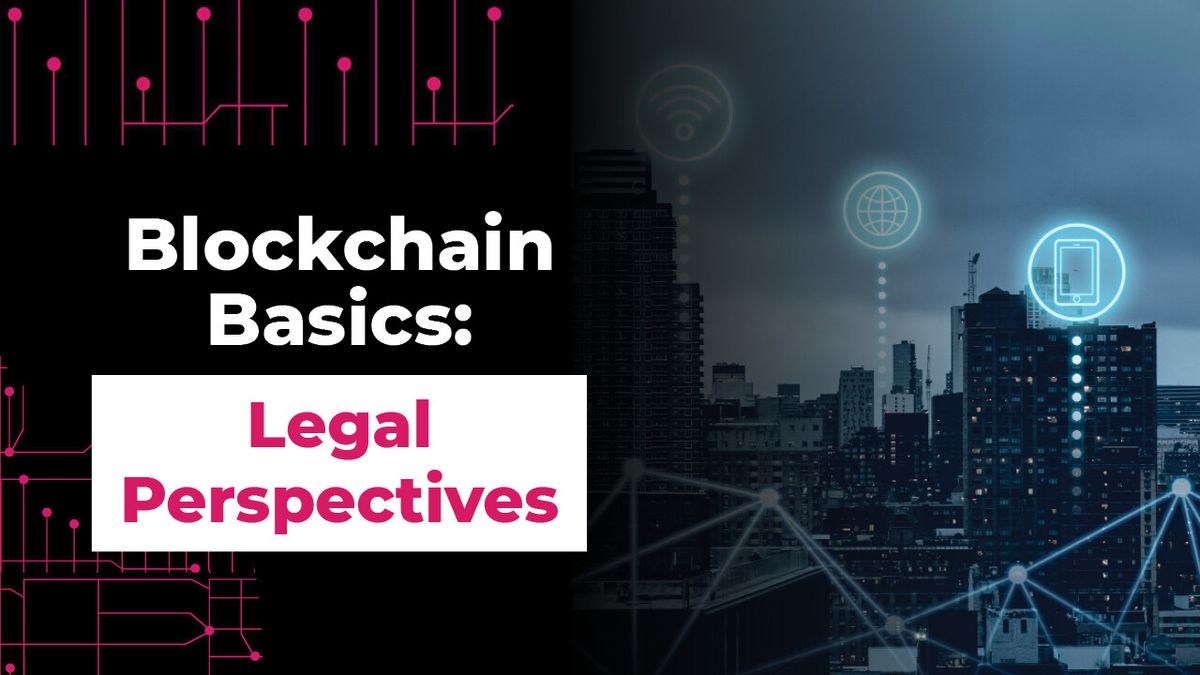Blockchain Basics: Legal Perspectives

What is Blockchain?
A blockchain is a decentralized digital ledger that records information across many computers so that it cannot be altered retroactively. Once some data has been recorded inside a blockchain, it becomes very difficult to change it. It is secure because it uses hashing and the proof-of-work or proof-of-stake mechanism and is distributed among a peer-to-peer network. Some of these networks or public, permissionless networks, while others are private, permissioned networks managed by a third party. Any node can use the blockchain to verify everything is still in order. When someone creates a new block, it is sent to everyone on the network, and each node verifies the block to ensure it has not been tampered with. If everything checks out, each node adds this block to the blockchain, and all the nodes in this network create consensus. They agree on what blocks are valid and which aren't. Blocks that are tampered with will be rejected by other nodes in the network.
What is a smart contract?
A smart contract is a self-executing contract with the terms of the agreement written in lines of computer code. Smart contracts are also stored on the blockchain and can automatically exchange payments (including coins), services, or other agreed-upon compensation based on the contract terms. Blockchain technology has been used for other things like financial services (processing automatic payments, loans, and insurance claims), supply chain management (ensuring the traceability of goods and payments), real estate (facilitating the buying, selling, and leasing of properties), legal services (executing and enforcing contracts and creating a digital notary), medical services (storing medical records), or even government services (collecting taxes).
Legal Implications in fintech
Blockchain technology is used to track transactions and information in a way that builds on previous transactions or units of information. In finance, blockchain is used to identify ownership of securities or currency by showing who bought it and subsequent transactions. Blockchain is also being used to aid financial inclusion by simplifying and verifying land or home ownership, allowing owners to more easily gain credit and use the registry to post property as collateral. The United Nations Development Program, Blockchain Learning Group, and Blockscale Solutions have completed a pilot project in Panchkula, India, which has eliminated tampering and corruption and provides real-time traceability and transparency on the state of any given property. Blockchain is considered a safer way to trade securities, money, or record property because it records transactions sequentially, ensuring that previous ones are unchangeable. It can also be independently verified by many other people, making it more transparent when compared to a paper-based system controlled by a central bank or organized exchange. However, some hackers have been getting into the blockchain and diverting monetary transactions.
FinTech Law's legal team has experience dealing with cryptocurrency and blockchain technologies. Bo & the FinTech Law team have spent years studying, assessing, and maneuvering the world of cryptocurrency and blockchain technology; they are prepared to help you and your business with any web3 needs. FinTech Law's advanced cryptocurrency and blockchain legal services help set it apart as a premier technology law firm and service provider.
As a leading figure in cryptocurrency, the FinTech Law cryptocurrency law team can guide you through even the most in-depth aspects of the crypto world.
Our Crypto Services include the following:
- Assistance in corporate formation of blockchain companies, including decentralized autonomous organizations
- Formation of crypto and digital asset funds, including hedge and mutual funds, and other investment products
- Informed advisement on blockchain and crypto-related regulations
- Detailed consult on cybersecurity, data privacy, other operational areas…and much more!
Works Cited
“Blockchains and Their Use in Fintech.” Youtube, uploaded by IMF Institute Learning Channel, 31 Aug 2021, Accessed 7 Feb 2024, www.youtube.com/watch?v=DuVdXmIb580
“Crypto Law Services.” Fintech Law, Accessed 7 Feb 2024, www.fintechlegal.io/services/crypto-law-services.
“How Does a Blockchain Work?” Youtube, Uploaded by Simply Explained, 13 Nov. 2017, Accessed 7 Feb. 2024, www.youtube.com/watch?v=SSo_EIwHSd4.
